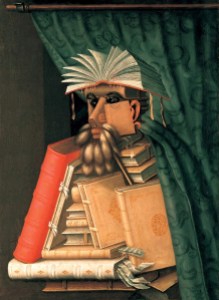When people research a topic for school, work or personal interest, they often turn to Wikipedia as their starting point. Many of those visitors then continue their research by following one of the millions of footnotes to the original resources held in libraries around the world that are used to verify Wikipedia’s content. This is a symbiotic relationship – Wikipedia becomes more reliable and libraries’ treasures are made more accessible.
Many librarians are also eager to hear how they can work with Wikipedia more – which is why the Wikimedia Foundation is speaking at two events this weekend. Wikimedia Foundation Executive Director Sue Gardner will be delivering the president’s program address at the American Library Association conference in New Orleans, Louisiana. On the same day, Cultural Partnerships Fellow Liam Wyatt will be a keynote speaker at the EIFL (Electronic Information for Libraries) General Assembly in Minsk, Belarus. EIFL is a group dedicated to supporting libraries in developing countries.

“Libraries are, ultimately, about helping people find the information they need,” says Rachel Slough, the teaching and learning librarian at the University of Wisconsin-La Crosse. “Wikipedia often has that information. Both libraries and Wikipedia support learning and the efficient dissemination of accurate information. In academic libraries, there is an emphasis on the teaching roles of libraries; Wikipedia supports and enhances that mission.”
Rachel is one of a handful of university library staff serving as Wikipedia Campus Ambassadors. Campus Ambassadors are trained on teaching newcomers how to contribute content to Wikipedia, either as students whose professor assigns them to edit an article for class or as people on campus who want to share what they know with the world.
Librarians are a natural fit for this role. They have been urging students for years to start with a reference like Wikipedia that can provide a general overview of a research topic and a list of sources at the bottom – and then use that source list to dig deeper into the topic.
“You need to start where the students are at and bring them along to appropriate scholarly resources,” says Tony Garrett, a Campus Ambassador who is the head of reference and access services at Troy University.
Rachel agrees. She works in a freshman residence hall teaching students about the library, and she says she’ll often use Wikipedia as a hook to grab students’ attention. Wikipedia, she says, is a part of students’ reality, so it’s something familiar.
“Part of effective service in any profession is being accountable and authentic with those we serve,” Rachel says. “Wikipedia forces me to challenge my assumptions, to meet my users where they are, and to embrace the changing information landscape.”
Many libraries are also reaching out to Wikimedia projects in the form of partnerships with Wikimedia Chapters. The GLAM-WIKI program (GLAM is an acronym for Galleries, Libraries, Archives, and Museums) connects institutions like libraries with people in the Wikimedia movement to build on the symbiotic relationship between the two communities. To name just a few library-related programs:
- Wikimedia France has partnered with the Bibliotheque National de France on a project in which the French national library provides high-quality scans of old documents, which are placed on Wikimedia Commons and transcribed on Wikisource.
- The British Library has hosted several “edit-a-thon” workshops with Wikimedia UK. Specialist librarians from the British Library, who have access to the original materials in the collection, work alongside Wikimedians in private reading rooms.
- The National Library of Australia‘s digitized newspaper search engine allows users to easily obtain code to create a footnote in Wikipedia simply by clicking “cite” in any article in any edition of any newspaper.
The Wikimedia Foundation will also have a booth at the exhibit hall at the American Library Association conference. If you’re at either the EIFL or the ALA this weekend, come talk with us about how libraries can have a proactive and mutually-beneficial relationship with Wikimedia projects.
—
LiAnna Davis, Communications Associate, Public Policy Initiative
Liam Wyatt, Cultural Partnerships Fellow

Can you help us translate this article?
In order for this article to reach as many people as possible we would like your help. Can you translate this article to get the message out?
Start translation